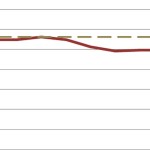Leadership and the Missing Rhode Islander
It took me a couple of read-throughs to put my finger on the eery blank space in Mike Stanton’s group interview with Rhode Island’s three most powerful politicians: House Speaker Gordon Fox, Governor Lincoln Chafee, and Senate President Teresa Paiva Weed. Although only the two legislators are officially Democrats — Fox from Providence and Paiva Weed from Newport — for all intents and purposes, the governor is, as well.
But I’m not talking about the lack of partisan diversity. I’m talking about the missing Rhode Islander. You’re nowhere in their words and, judging by the policies that they continue to promote, nowhere in their thoughts.
Oh, they talk about groups of Rhode Islanders. Paiva Weed wants “a written document reflecting the consensus of business, academia, and the nonprofits.” She wants “the business community and the not-for-profit leadership” to become “sales people for our state.” For his part, Chafee thinks of Rhode Islanders in terms of the majority of “voters” who rubber-stamped government projects requiring more public debt.
Part of the reason the politicians talk about groups is that they think in terms of “leaders.” If you own a business, you are part of “the business community” and should (by some mechanism) appoint a leader to represent you at the mythic Table, or (more likely) accept that the government has chosen a spokesperson for you, like an appointed lawyer for somebody accused of a crime. If you are an “employee,” the government will look to union leaders and poverty advocates as your representation as they jointly create a training program so you can be matched to an “employer” who needs the skills that a government program has given you.
This all creates a telling distinction of philosophies, when it comes to the triumvirate’s exhortations to tax and spend more on unionized labor in order to “invest” in education and infrastructure. In my view, the reason government has any role at all in such things is to enable people to improve themselves so as to be more independent.
That is, you pursue the education that you think you need, and if you can’t find an employer who needs somebody to do whatever it is that you want to do for a living, you have access to roads and libraries and other infrastructure to allow you to compete with those who are already established. The “economic development plan” ought to be to let you plan for yourself and to let the folks currently at the top of our economy defend their own turf when your innovation and hard work propel you forward.
When the politicians divide us into groups that are supposedly represented by “leaders,” government “investments” are mainly a special-interest concern. Government spending on eduction is like a long-term venture capital investment in the economy generally, but it’s an immediate boon to the teachers, administrators, and unions that get the money and power right up front. More important, such a worldview is all about what the leaders want, shaping the world according to the “vision” of the people already in power.
That’s why their investigation of Rhode Island’s business unfriendliness is mainly about shining it up. Consider:
The Senate plans to release a report in January, in conjunction with the business-backed Rhode Island Public Expenditure Council, to address factors that put Rhode Island at the bottom of national rankings for business climate. For instance, the low percentage of college degrees could be boosted by making it easier for adults with college credits at four-year institutions to apply those credits toward a two-year community college degree and receive training for jobs in today’s changing economy.
“Maybe if we looked at those rankings and figured out what’s making us look so bad and shine ’em up a little bit then maybe we won’t have the Eeyore effect — everything is bad,” said Fox, referring to the dour donkey in the Winnie the Pooh children’s stories.
When most of us look at Rhode Island’s poor rankings in category after category, we see evidence of a region with no opportunity, and the movement of employment and taxpayers out of the state backs that interpretation up. When the people who want to mold Rhode Island according to their flawed vision look at those rankings, they see a marketing issue that’s mainly a problem because it makes their leadership look bad. Lipstick on a pig, right Mr. Fox?
Not surprisingly, given the state’s long decline, it seems as if the notion of painting over Rhode Island’s problems has become a central theme of all things government. Perhaps that’s why the single concrete “vision” offered in the interview is Paiva Weed’s suggestion that we should (in Stanton’s words) “focus more on the arts.” To which Chafee responded, “It’s a good idea, absolutely.”
To the people whom residents of the Ocean State allow in leadership positions, Rhode Island is their tinker box, not an independent geography full of independent people who have a right to pursue their own dreams. We don’t need their vision or their plan. Nobody is better situated to determine what each of us can and should do than each of us as individuals.
The paths to prosperity, freedom, and personal security are one and the same, and it is desperately past time that Rhode Islanders insist that our elected officials stop trying to pull us elsewhere.




